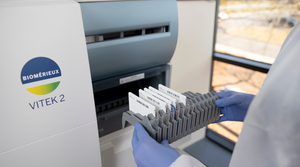Karl Storz Focuses on Bladder Cancer Detection With New Device
The company said it is launching its PDD Blue Light Flexible Video Cytoscopy System.
May 18, 2018

Karl Storz is focusing on bladder cancer detection with its latest product. The El Segunda, CA-based company said it is launching the PDD Blue Light Flexible Video Cytoscopy System. The product launch follows the approval of a supplemental new drug application and a premarket approval supplement from FDA extending the indication for Blue Light Cystoscopy with Cysview (BLCC) to include use of the new Karl Storz PDD Blue Light Flexible Video Cystoscope.
Also included in the approval is an expanded indication for the repetitive use of Cysview within the same patient and for the identification of Carcinoma in Situ (CIS); one of the most challenging types of bladder cancers to detect.
The company said these indications greatly increase the treatment possibilities of this innovative therapy, which has rapidly become the standard of care for bladder cancer treatment at major medical institutions across the U.S.
"This expanded approval in both rigid and flexible BLC means that Cysview can now be used during transurethral resection of bladder cancer surgery for diagnosis and staging, as well as with follow-up surveillance of non-muscle invasive bladder cancer (NMIBC). Patients with NMIBC, especially high grade, require careful and frequent follow-up due to the high rate of recurrence and progression. Blue light cystoscopy with Cysview, will enable physicians to provide appropriate and more accurate treatment earlier, which in my experience results in improved outcomes for my patients," said Gary Steinberg, MD, The Bruce and Beth White Family Professor, Vice Chairman and Director of Urologic Oncology, University of Chicago Medicine, in a release.
Bladder Cancer affects over 708,444 patients in the US. Treatment is difficult because NMIBC tumors can look similar to normal healthy tissue and can be missed or incompletely removed. Unfortunately, patients have a high probability of cancer recurrence, and in 2018 it is estimated that there will be 17,240 patient deaths due to bladder cancer, according to the American Cancer Society.
The occurrence of bladder cancer in patients has led some firms looking at more efficient ways to discover the disease early.
Last year, Numares AG said it was developing a noninvasive test for the disease. The diagnostics uses patients' metabolites to diagnose and monitor certain cancers.
About the Author(s)
You May Also Like



